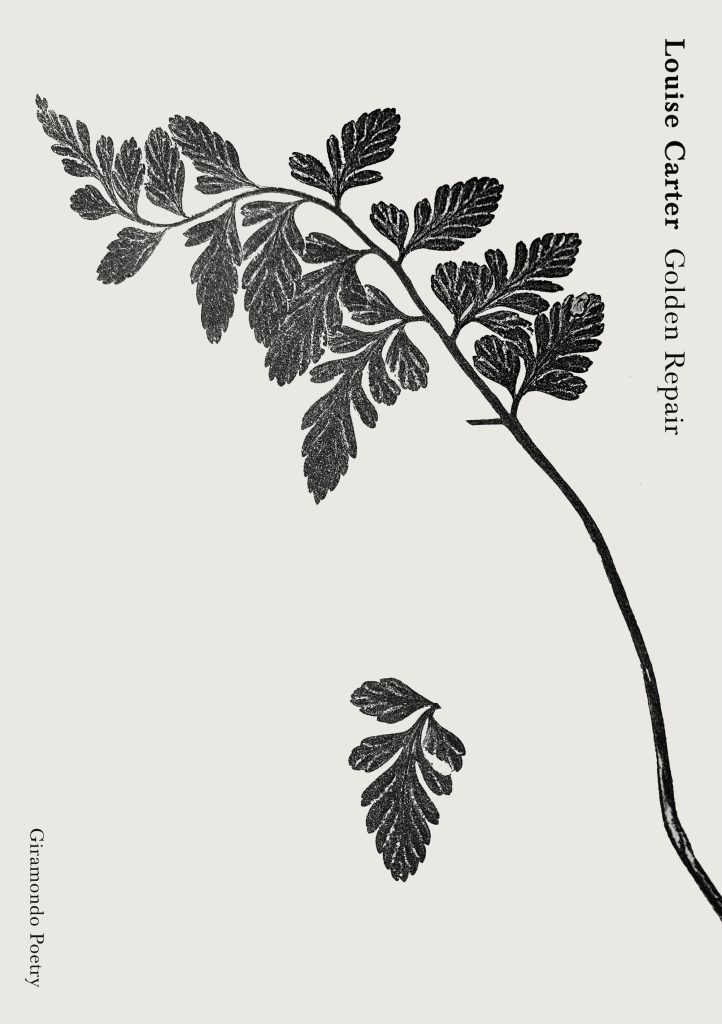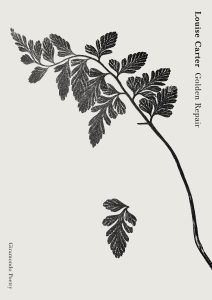Louise Carter: a note on Golden Repair
Louise Carter reflects on her debut book of poetry, Golden Repair, which draws upon the sounds, colours and quirks of urban and suburban Australia. The book was released in August 2023.
I don’t mean to imply that I was ‘raised by a television’, but one of my earliest memories is of watching TV. It was the music video for ‘Lucky Star’ by Madonna, and the spellbound sense of wonderment it gave me is something I can still recall with absolute clarity.
About a decade later, when I was thirteen, I popped the CD Jagged Little Pill into my Sony Boombox (most likely a gift from Nan in Christmas 1995), where it pretty much remained for an entire year. I memorised every word of Alanis Morissette’s album-length outpouring of lamentation, starting, of course, with the deliciously scandalous F-bomb in the lead single ‘You Oughta Know’, before moving on to the various examples of irony – legitimate and otherwise – listed in the song ‘Ironic’.
The white-hot anguish in Morissette’s voice was so captivating, it didn’t matter that I didn’t have the life experience to relate to the romantic betrayal it described. For thirteen-year-old Louise, that album was an awakening: an entry point into the craggy and treacherous emotional terrain of adulthood.
My fascination with pop music led to my interest in lyric poetry. The human impulse to give voice to ecstasy and suffering is what laid the foundations for the lyric tradition. The Book of Psalms in the Old Testament Bible is one of the earliest recorded examples of lyric poetry, with its songs of praise and lament addressed directly to God. Through my research, I came to realise that the musicality of biblical language is functional: it works to heighten its emphatic force.
‘Golden Repair’, the title poem of this collection, is my Jagged Little Pill. It contains the vitriol of a woman scorned, and the incandescent fury provoked by being dumped. Yet just as the title of Morissette’s album hints at healing – the relief that follows the ingestion of a painkiller, for instance – the anger of the poem subsides as it begins the work of reparation.
Shaping unruly emotional forces into poetic structures has helped me to make sense of experiences that initially felt senseless. There’s an ancient, alchemic power in it. I see lyric poetry as humanity’s first recording device, one that can capture the sound of a person’s voice, as well as their aliveness. I’m also interested in poetry’s archival capabilities, which is why many of these poems include references specific to my suburban upbringing. I feel lucky to have grown up in a time when our gods were pop stars, singing songs of praise and lament to teenage girls; themselves gods.
— Louise Carter



